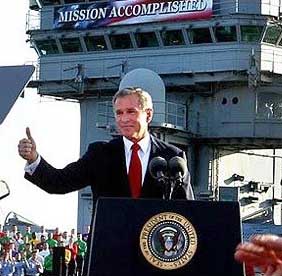The 1953 coup in Iran, known as " 28 Mordad ", became the centerpiece for the new imperialism. It was only natural that the US embassy in Tehran became a "nest of spies", as it was dubbed by the Iranians. It had become "mission control center" for all US espionage activity in the Muslim world.
The following is an interview with Eric Walberg that first
appeared in Khamemei.ir . Eric Walberg is a well-known Canadian
journalist, specializing in the Middle East, Central Asia and Russia.
[Khamemei.ir]: What made the US
orchestrate the coup d'etat of the 28th of Mordad in Iran (August 19, 1953)?
It is important to follow the events in the region that the
1953 coup in Iran was part of. Imperialism has gone through three distinct
stages since the term "Great Game" was coined in the nineteenth
century to describe the rivalry between imperialist powers Russia and Britain.
Imperial strategy was simpler then, but the basic elements were in place.
Britain sent spies disguised as surveyors and traders to Afghanistan and
Turkestan and, several times, armies to keep the Russians at bay. The ill-fated
Anglo-Afghan war of 1839-1842 was precipitated by fears that the Russians were
encroaching on British interests in India after Russia established a diplomatic
and trade presence in Afghanistan. Already by the nineteenth century there was
no such thing as neutral territory. The entire world became a gigantic playing
field for the major industrial powers, and Eurasia was the center of this
playing field.
The coup in 1953 in Iran was a key move in what I refer to as "Great Game 2":
the imperialist powers, now united in a Cold War against socialism and third
world liberation, which went into high gear following World War Two. As Great
Game 2 began, Soviet and British troops were still occupying Iran. Pro-Soviet
elements tried to seize power in the Soviet-occupied north and the Soviet Union
hoped that this movement would spread and bring Iran into the anti-colonial
camp. The Azerbaijan People's Government and the Republic of Kurdistan were
declared in late 1945, but collapsed when the Soviet forces retreated in 1946.
The communists (Tudeh Party) were killed, but National Front Prime Minister
Mohammad Mossadegh took a leaf from their book and nationalized the
Anglo-Iranian Oil Company in 1951.
The British Labour government, betraying its socialist principles, demanded
Great Game 1-style gunboat diplomacy: a
coup to overthrow the democratically elected prime minister. British minister
of defense Emanuel Shinwell warned that if tough action was not taken, " Egypt and other Middle Eastern countries
would be encouraged to think they could try things on; the next thing might be
an attempt to nationalize the Suez Canal."
The CIA vetoed the plan, and instead, organized and paid anti-Mossadegh
protesters and street thugs to riot, loot and burn mosques and newspapers in
Tehran, leaving almost 300 dead. The CIA team, led by retired army general and
Mossadegh's former interior minister Fazlollah Zahedi, mobilized a few pro-Shah
tank regiments to storm the capital and arrest Mossadegh on the pretext that he
was a communist.
Mossadegh was an avowed anti-communist, and thus, unlike Cuba's Fidel Castor a
few years later, was unable and unwilling to turn to the Soviet Union for help.
The US and Britain re-installed the now thoroughly discredited "Shah Junior" [the
eldest son of the first Shah of the Pahlavi dynasty, Reza Shah] who dutifully
continued the secularization process begun by his father, and proceeded to run
Iran as an obedient secular neo-colony of the US, abandoning his father's
attempt to retain a modicum of independence by playing off the imperial powers
against each other.
The weakness of Britain did not escape the notice of Colonel Abdel-Nasser, who
forced Great Britain out of Egypt in 1954 and nationalized the Suez Canal in
1956, in a rare win for a periphery player in Great Game 2. Encouraged by their
"success" in Iran, British Prime Minister Anthony Eden believed that a
British-French-Israeli attack on Egypt would not only remove Nasser, getting
back the canal, but would also strengthen the British position vis-a-vis
the United States.
(Note: You can view every article as one long page if you sign up as an Advocate Member, or higher).






